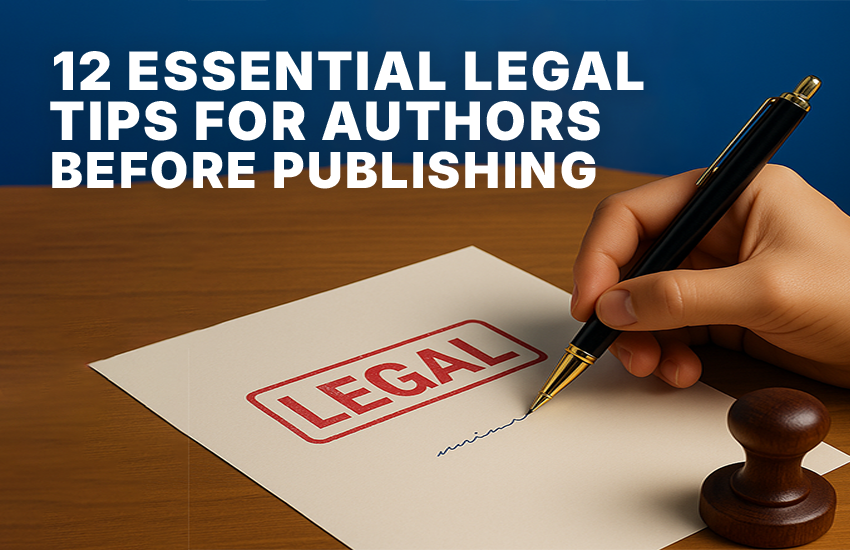- 1 12 Legal Tips for Authors
- 1.1 1. Copyright Basics for Authors
- 1.2 2. Understand Publishing Contracts
- 1.3 3. Royalties and Advances for Authors
- 1.4 4. Right Reversion Clauses Explained
- 1.5 5. How to Register a Book Copyright
- 1.6 6. Fair Use Rules for Writers
- 1.7 7. Fair Use and Permissions for Quotes
- 1.8 8. Trademarking Book Titles
- 1.9 9. Self-Publishing Legal Checklist
- 1.10 10. Author’s Guide to Licensing Rights
- 1.11 11. Publishing Agreement Pitfalls to Avoid
- 1.12 12. Author Rights in Publishing
- 2 Wrap Up!
You have completed your book—congrats! It’s no little accomplishment. However, you can’t afford to ignore the legal stuff of the publishing industry before you dash off to see your name printed or on Kindle screens.
Yes, it’s not the most glamorous aspect of writing, but when we say that it has the power to make or ruin your career, that’s true!
Just as important as your writing are contracts, copyrights, royalties, and rights. Let’s go over some essential legal tips for authors before publishing.
12 Legal Tips for Authors
Before publishing, here are some essential legal tips for authors that you must know.
1. Copyright Basics for Authors
In the majority of countries, copyright immediately protects your work as soon as you set words down in your book. This implies that without your consent, no one may legally copy, distribute, or change your work.
The catch is that you shouldn’t register a book copyright just because you immediately own it. If someone tries to steal or misuse your work, you are better protected if you are officially registered.
Registration makes the process much easier if you ever need to use the legal system to defend your rights.
Before you start submitting your book to agencies or publishers, consider registering it. It’s cheap and can spare you a lot of trouble down the road.
2. Understand Publishing Contracts
Understanding publishing contracts is crucial. There are phrases, conditions, and legal jargon that make you want to hide under your desk. However, this section outlines your writing career.
The following are the main points you should understand:
Author Advances and Royalties
For each book sold, how much will you make? Will you receive a payment in advance? What portion of royalties do you have a claim to?
Explanation of Right Reversion Clauses
This explains to you when (and how) you will get your book rights back. For instance, you should be able to reclaim your rights if your publisher decides to cease selling your work.
Avoid Publishing Agreement Pitfalls
Be cautious of vague wording, clauses that last forever, or rights-grabs in which the publisher appropriates all formats (film, audio, merchandise) without paying you a reasonable price.
Never sign a publication deal before reading it carefully. If in doubt, have it reviewed by a literary agent or lawyer.
Don’t sign away your future royalties without knowing what’s at stake. Let Publishing Republic help you along the way.
3. Royalties and Advances for Authors
The money you earn when you sign a publishing contract is known as an advance. Consider it a loan secured by your upcoming book sales. Until your advance is “earned out,” or when sales exceed the amount you were paid, you won’t get any more royalties.
After the advance, you get royalties for each book. Although the percentages can change, they typically approximate this:
- 10–15% of the selling price in hardcover
- 6–8% of the selling price in paperback
- 25% for e-books (standard, but negotiable)
Never be scared to bargain and always compare royalties from publishers. Over thousands of book sales, even a tiny percentage difference can have a significant impact.
4. Right Reversion Clauses Explained
Let’s say your book is published and does well. You want to self-publish it or turn it into something different after years have passed since it went out of print. Are you able to?
Your right of reversion clause will determine that.
If the publisher ceases to sell your book aggressively, this provision specifies when your rights will be returned to you. Without it, you can be bound by a contract that gives your publisher permanent ownership of your work, even if they aren’t using it.
Make sure the reversion clause is clear. For instance, “author rights revert if the book sells fewer than 100 copies in a year.”
5. How to Register a Book Copyright
Although we discussed this earlier, it’s important to break it down.
In the majority of countries, below is how to register a book copyright:
- Go to your national copyright office’s website (e.g., the U.S. Copyright Office).
- Provide information about your book in an online form.
- A copy of your manuscript should be uploaded.
- Pay the registration fee, which is typically less than $100.
That’s it! After that, you get a certificate attesting to the official registration of your copyright.
Although it is best to register prior to publication, you can also do so after it has been released. The sooner, the better.
6. Fair Use Rules for Writers
Every writer wants to include well-known quotes, lyrics, or references to popular culture. Fair use rules for writers are complex, so proceed cautiously.
Fair use permits you to use brief excerpts of copyrighted content for parody, criticism, or commentary without obtaining permission. However, judges are even more strict when it comes to commercial books.
Whenever possible, get permission. If you don’t, even one song’s lyrics could get you into trouble.
7. Fair Use and Permissions for Quotes
Always verify that permission is required before utilizing direct quotes (from other books, speeches, or media). This can be the cause of defamation and libel in books.
Brief quotes (one or two sentences) are acceptable.
Permission may be needed for longer passages or anything essential to the argument in your work.
Even for short quotes, always give due credit to your sources. It is not only ethically right, but it also enhances your authorial credibility.
8. Trademarking Book Titles
Fun fact—book titles can’t be protected by copyright. However, you can trademark it—but only in specific circumstances.
You can avoid copycats by trademarking your book title if it is original and you intend to create a brand around it. Trademarking is not required for individual books. However, if it’s a franchise or series, it might be worth the money.
9. Self-Publishing Legal Checklist
If you choose to work for yourself, you take on the roles of writer, editor, marketer, and, surprise!, legal counselor.
This is a brief self-publishing legal checklist:
- Get a copyright registration.
- Ensure that you are the owner of the ISBN; don’t allow a publishing service to do so.
- Make sure you own the finished work by using contracts with freelancers (editors, cover designers, etc.).
- Check permissions again before using any images, quotes, or references.
- Understand the terms of your platform.
Don’t neglect freelancer contracts. You don’t want your book cover to be later claimed by a designer.
10. Author’s Guide to Licensing Rights
A publisher may seek more than simply book rights when you contract with them. They might ask for license rights, such as those for translations, audiobooks, or movie adaptations.
This is acceptable to certain authors (particularly if the publisher has good connections). In order to negotiate later, some people prefer to keep those rights distinct.
Make sure the contract specifies how revenues will be distributed if you decide to grant these rights. You’re entitled to your fair share.
11. Publishing Agreement Pitfalls to Avoid
There are many pitfalls in a publishing agreement. Avoid the following publication agreement pitfalls:
- All-rights grabs, in which the publisher retains all rights indefinitely.
- Vague royalty terms like “net sales” can be manipulated.
- Unclear deadlines for when your book will actually be published.
Always question yourself, “What if…” For instance, what would happen if the publisher filed for bankruptcy? What if your book is never published? Good contracts cover the worst-case situations.
12. Author Rights in Publishing
You are ultimately the founder of your book. Don’t allow ownership to be taken away by a contract, business, or legal technicality.
You should try to protect the following important author rights in publishing:
- The right to get authorship credit.
- The right to accept major changes.
- The right to fair royalties.
- The right to reclaim your book in the event that the publisher discontinues distribution.
Wrap Up!
It’s exciting to publish a book, but if you overlook the legal aspects, your dream might turn into a disaster.
Consider it this way, you were creative when you wrote your book. The goal of publishing your book is to maintain your uniqueness. Additionally, your career will be greater if you understand these legal tips for authors before publishing.
Write your heart out, then. But for a short period, put on your “lawyer hat” when it comes time to publish. Your future self will appreciate you.
Confused about rights, royalties, reversion clauses, and other laws? Publishing Republic makes it simple, safe, and stress-free. Connect with us now!



